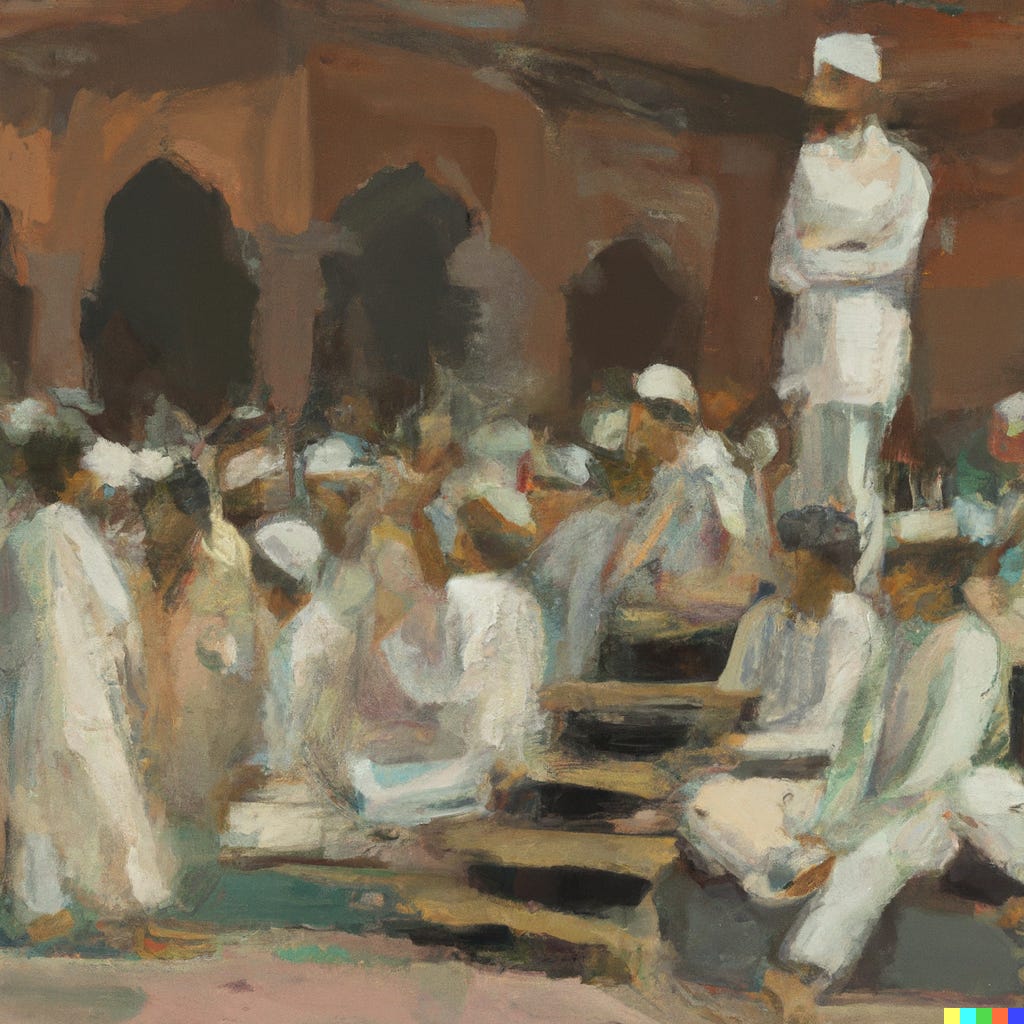Safarnama #5 Embracing Dastangoi on the Steps of Jama Masjid
Old words can be re-narrated in new words: all that was needed was empathy, a power and ability to embrace and to feel the warmth of the embrace.” ― Shamsur Rahman Faruqi
Safarnama is a work of fiction created solely for entertainment purposes. The series aims to tell stories about various places and lost time in a creative manner. While the names of some places and individuals may be used, any resemblance to real places, events, or persons, living or dead, is purely coincidental.
The creators of Safarnama have taken certain liberties in the storytelling process, including the use of creative freedom in naming and describing various elements of the series. Therefore, any resemblance to actual events or places is unintentional
It’s the 21st of June 1858, as I venture through time, the desolate streets lay before me, devoid of any signs of life. The bustling Bazaar, once teeming with activity, now stands in absolute solitude. It appears that the stifling heat has driven everyone away, leaving behind a ghost town. This summer is different from what I’ve experienced.
In the distance, a peculiar sight catches my attention. A young white man, dressed in a uniform, finds respite from the scorching sun as he sits outside a shop on a chair. Beside him stands a man laboriously wielding a massive Punkah, attempting to provide relief from the stifling heat. The white man, drenched in sweat, suddenly raises his voice, commanding the man to "Pull it harder."
At that moment, our gazes meet, and I sense the confusion mirrored in his angry expression. I understand his bewilderment, for in the middle of 19th-century Delhi, the sight of a young man wearing vibrant colored kurta pajama would undoubtedly spark curiosity and question among the onlookers.
Nevertheless, I continued my solitary walk along the empty street, eventually reaching Jama Masjid. Ah, finally, a familiar sight greeted me. I observed the vast crowd gathering near the mosque, a comforting sight after traversing the deserted streets.
Upon reaching the steps of Jama Masjid, I noticed a gathering encircling a man dressed in a white kurta and a Nehru-style cap, passionately recounting a story. He began his recitation with a tale from the "Dastan-i-Amir Hamza." Intrigued by the storyteller, I approached a nearby individual and inquired about the man. The person informed me that he was a Dastan-go, a storyteller, who would be sharing twenty thousand separate stories from today until the following month.
Eagerly, I settle down alongside the man, ready to immerse myself in the courageous and chivalrous adventures of Hamza as the mesmerizing tale unfolds.


